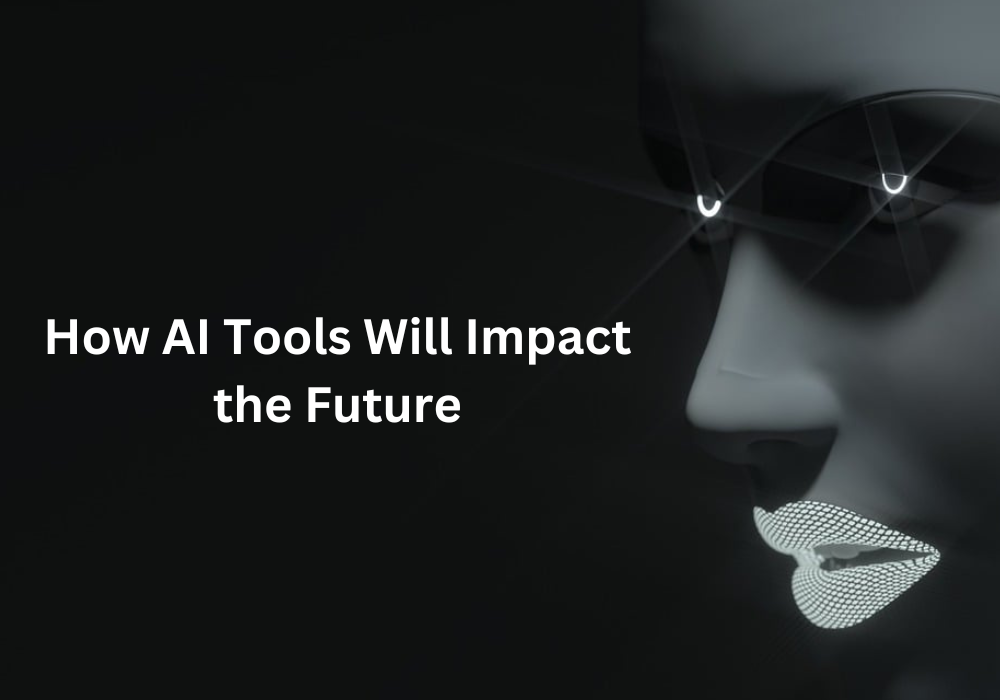The impact of AI tools on the future is vast and multifaceted. While the full extent is still being unraveled, we can make some educated predictions based on current trends and the trajectories of AI technologies. Here are some potential implications across various domains:
- Economic Impact:
- Job Transformation: While AI will automate certain jobs, especially repetitive tasks, it will also create new kinds of work. The net effect on job numbers is debated, but there’s consensus that the nature of many jobs will change.
- Increased Productivity: Automation and efficiency improvements will boost productivity in sectors like manufacturing, agriculture, and healthcare.
- Global Economic Shift: As AI becomes a significant productivity factor, nations that adopt and integrate AI technologies effectively could outpace others economically.
- Social Impact:
- Education: The educational system will need to adapt, emphasizing skills that AI cannot easily replicate, like critical thinking, creativity, and emotional intelligence.
- Ethical Concerns: AI’s decision-making processes, especially in sensitive areas like criminal justice or healthcare, will raise ethical questions. Transparency, fairness, and accountability will be critical.
- Healthcare:
- Disease Prediction: Advanced AI models will predict outbreaks and the spread of diseases, enhancing public health interventions.
- Personalized Medicine: AI tools will help customize treatments based on an individual’s genetic makeup, lifestyle, and other factors.
- Robotic Surgeries: Precision and accuracy will increase with AI-assisted surgical robots.
- Transportation:
- Autonomous Vehicles: Self-driving cars, trucks, and drones will redefine transportation, logistics, and urban planning.
- Traffic Management: AI will optimize traffic flow in real-time, reducing congestion and emissions.
- Environment:
- Climate Modeling: AI will enhance climate prediction models, providing better data for policymakers.
- Conservation: AI-driven analysis will help monitor endangered species and track deforestation.
- Art and Entertainment:
- Content Creation: AI can already generate music, art, and even stories. This will reshape the creative landscape, though human touch will always have its unique value.
- Personalized Entertainment: From movies to video games, experiences will be tailored to individual preferences using AI.
- Science and Research:
- Data Analysis: AI can sift through massive datasets, uncovering patterns humans might miss. This will accelerate discoveries in fields like astrophysics, genomics, and archaeology.
- Drug Discovery: AI will expedite the drug discovery process, potentially saving millions of lives.
- Business and Commerce:
- Customer Service: Chatbots and virtual assistants will become more prevalent, leading to instant customer support.
- Supply Chain Optimization: AI will predict demand, optimize inventory, and streamline logistics.
- Security and Defense:
- Cybersecurity: AI tools will both defend against and perpetrate cyber-attacks, leading to an arms race in the digital domain.
- Surveillance: Advanced AI-driven surveillance could raise concerns about privacy and civil liberties.
- Everyday Life:
- Smart Homes: Our living spaces will become more responsive and adaptive to our needs.
- Personal Assistants: AI-driven assistants will become more integrated into our daily routines, helping manage tasks and information.
While the potential benefits of AI are enormous, challenges such as bias in AI, unemployment due to automation, security concerns, and ethical dilemmas need to be addressed. Balancing innovation with thoughtful regulation will be essential to ensure that AI serves humanity’s best interests.

